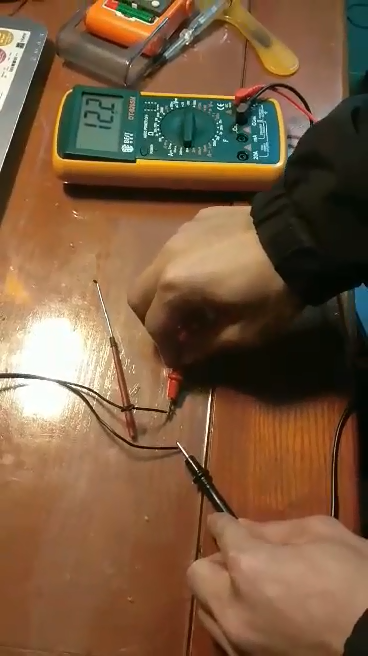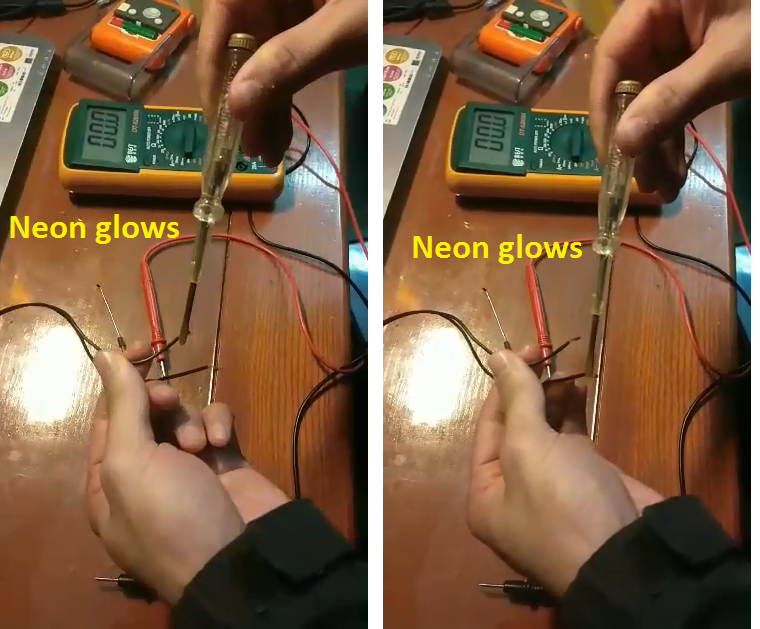I have a problem to understand how AC electricity tester works. I have a 12V DC Adapter (from 220 VAC). The multimeter gives the results “12,2” for it.
When I connect the tester to an output wire of adapter then the other wire, the neon glows at both situation. Why does this happen with 12V DC, both wires, while it doesn’t on a DC battery?
When I connect a probe of multimeter to one wire, the other probe to my hand (my body is connected to ground), Why does the voltage change on the screen results? https://www.youtube.com/watch?v=B3BciRd32Ag


